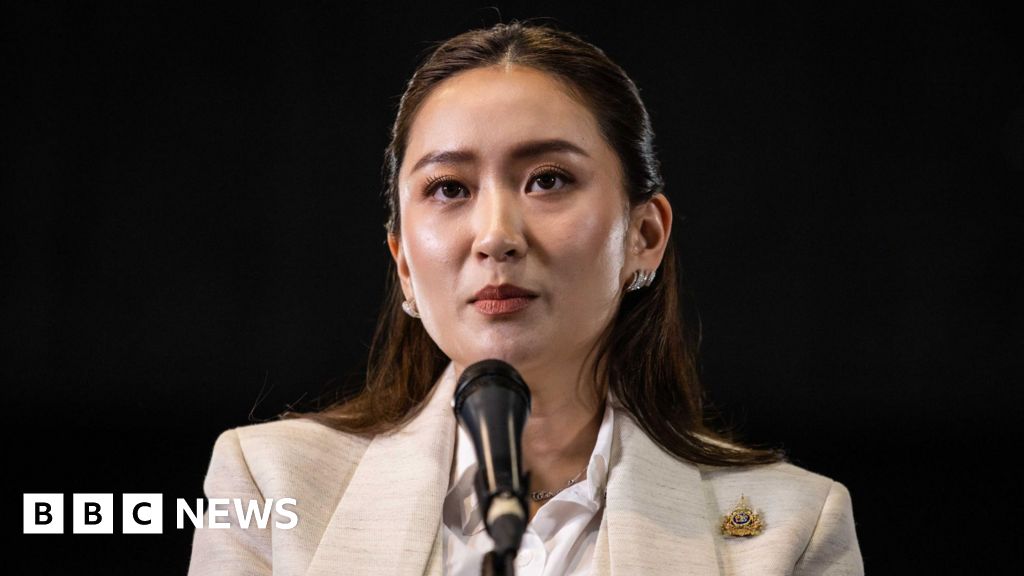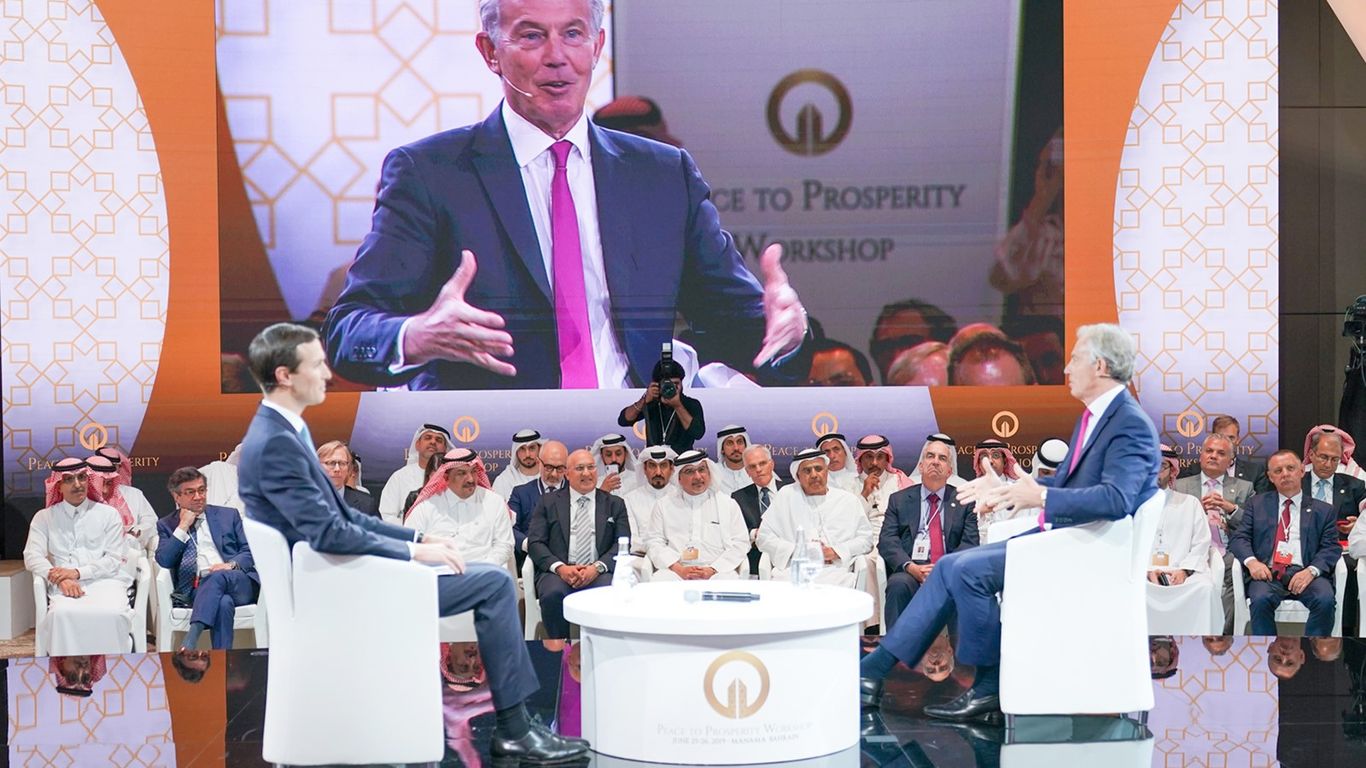Thai Prime Minister Dismissal: Impact on Thai-Cambodian Relations

Introduction
The recent dismissal of the Thai Prime Minister, Paetongtarn Shinawatra, by the court has caused a stir in the political landscape of the country. The reason behind this decision was a leaked phone call between Shinawatra and Cambodian leader Hun Sen, where she referred to him as "uncle". This call took place shortly before a border conflict between Thailand and Cambodia, which led to the court ruling that Shinawatra had breached ethical standards.
Key Details
The leaked phone call has brought to light the close relationship between the two countries and has raised concerns about the influence of Cambodia on Thai politics. It has also sparked debates about the ethical boundaries of political leaders and their interactions with other countries. The court's decision to dismiss the Prime Minister has been met with mixed reactions, with some applauding it as a necessary measure to maintain integrity in the government, while others view it as a political move to destabilize the ruling party.
Impact
The dismissal of the Prime Minister has not only caused a political upheaval but also has implications for the future of Thai-Cambodian relations. It remains to be seen how this decision will affect the already delicate relationship between the two countries and if it will have any impact on the ongoing border conflict. It also serves as a reminder to political leaders to be mindful of their actions and words, especially when communicating
About the People Mentioned
Paetongtarn Shinawatra
Paetongtarn Shinawatra is a Thai politician and businesswoman, born on 21 August 1986 in Bangkok. She is the youngest daughter of former Thai Prime Minister Thaksin Shinawatra and the niece of former Prime Minister Yingluck Shinawatra. Her family background is deeply rooted in Thai politics and business, with her father being a key figure in the country's political landscape before his ouster in a 2006 military coup. Paetongtarn graduated with a degree in Political Science, Sociology, and Anthropology from Chulalongkorn University in 2008. She furthered her education at the University of Surrey in England. Initially, she pursued a career in business before entering politics. Her entry into politics was marked by her nomination as the leader of the Pheu Thai Party in 2023. This nomination was significant, as it positioned her to potentially become a major figure in Thai politics. In 2024, Paetongtarn Shinawatra became the 31st Prime Minister of Thailand, making her the youngest person to hold the position and the second woman to do so, following in the footsteps of her aunt Yingluck. Her tenure was marked by her appointment as Minister of Culture in June 2025. However, her time as Prime Minister was cut short when she was suspended from office by the Constitutional Court on 1 July 2025. This suspension was due to a leaked phone call with former Cambodian leader Hun Sen, which raised concerns about her deference. Subsequently, on 29 August 2025, the Constitutional Court officially removed her from office. As of 2025, Paetongtarn has declared significant assets, totaling approximately ฿13.8 billion (about US $258 million), reflecting her family's wealth and influence. Despite her recent removal from office, Paetongtarn remains a notable figure in Thai politics, symbolizing the enduring influence of the Shinawatra family in the country's political landscape.
Hun Sen
Hun Sen is a Cambodian politician who served as the Prime Minister of Cambodia from 1985 until 2023, making him one of the longest-serving leaders in the world. Born on August 5, 1952, in Kampong Cham province, he rose to prominence during the late 1970s after fleeing the Khmer Rouge regime and aligning with Vietnam. Following the Vietnamese invasion that ended the Khmer Rouge’s rule in 1979, Hun Sen became Cambodia’s Foreign Minister and later was appointed Prime Minister in 1985 by the Vietnam-backed government[1][2][3]. Throughout his premiership, Hun Sen was a central figure in Cambodia’s transition from conflict to relative stability. He played a key role in negotiating peace agreements, including the Paris Peace Accords of 1991, which led to U.N.-supervised elections in 1993. Despite losing the initial elections to the royalist FUNCINPEC party, Hun Sen leveraged political and military influence to remain in power through coalitions and eventually consolidated sole leadership following a violent coup against Prince Norodom Ranariddh in 1997. His Cambodian People’s Party (CPP) consistently won subsequent elections, maintaining political dominance[2][3][4]. Hun Sen is credited with overseeing Cambodia’s economic reforms, transitioning the country from a socialist economy to a market-oriented one, which facilitated economic growth and reintegration into the international system. However, his tenure was also marked by accusations of authoritarianism, repression of opposition, electoral manipulation, and corruption[1][5][6]. After stepping down as Prime Minister in 2023, Hun Sen continued his political influence as the President of the Cambodian People’s Party and became the President of the Senate in 2024, maintaining a significant role in Cambodia’s political landscape[2][3]. His long rule has made him a key figure in Southeast Asian politics, known for balancing relations between Vietnam and China[6].
About the Organizations Mentioned
Thai Prime Minister
The **Prime Minister of Thailand** is the head of government and the de facto chair of the Cabinet, responsible for leading the executive branch, shaping national policy, and representing Thailand internationally[1][7]. The prime minister oversees critical departments such as the National Intelligence Agency, the Bureau of the Budget, and the National Security Council, and has the authority to approve all money bills introduced in the National Assembly, making the role central to Thailand’s political and economic governance[1]. Historically, the office has been pivotal in steering Thailand through political turbulence and economic challenges. The position cannot be held for more than eight consecutive years and is subject to parliamentary confidence, with the prime minister removable by a vote of no confidence[1]. Recent years have seen rapid changes in leadership, reflecting the country’s dynamic political landscape. The current prime minister, **Anutin Charnvirakul**, took office in mid-2025 amid political instability following the removal of Paetongtarn Shinawatra, Thailand’s youngest-ever prime minister and daughter of former premier Thaksin Shinawatra[2][6]. Anutin, a construction tycoon and head of the conservative Bhumjaithai Party, is known for pragmatic governance and pioneering policies such as the legalization of medical cannabis, earning him the nickname “Cannabis King”[2]. His administration emphasizes economic stabilization, tackling high household debt, and managing the fallout from global trade tensions, with technocrats filling key cabinet roles including finance, commerce, and energy ministries[4]. Anutin’s government also aims to revive tourism, stabilize agriculture, and resolve long-standing border disputes peacefully[4][5]. His cabinet, sworn in before King Maha Vajiralongkorn and Queen Suthida, symbolizes a balancing act between conservative monarchist elements and progressive political forces seeking early elections and constitutional reforms[5]. This period marks a critical juncture for Thailand as it navigates economic malaise and political realignment, with th
Cambodian leader
The term "Cambodian leader" primarily refers to the political leadership of Cambodia, notably the transition from long-time Prime Minister Hun Sen to his son Hun Manet, rather than an organization by that exact name. Hun Sen, who governed Cambodia since 1985, was a former Khmer Rouge commander who consolidated power through a 1997 coup and led the Cambodian People’s Party (CPP) to dominate national politics for decades[1][2][4]. His leadership was marked by rapid economic growth but also by authoritarian practices and human rights abuses, including suppression of opposition and limited democratic freedoms[2][4]. Hun Manet took office as Prime Minister on August 22, 2023, representing the first generational change in Cambodian political leadership in decades. Educated in the UK and a former U.S. military academy graduate, Hun Manet inherits a relatively stable yet socioeconomically unequal Cambodia with strong confidence in financial institutions and the ruling CPP’s overwhelming parliamentary majority (82.3% vote share in 2023)[1][5]. His ascension signals potential shifts in Cambodia’s domestic and foreign policies, though it remains uncertain whether he will continue his father’s authoritarian legacy or pursue closer ties with Western nations[1]. Cambodia’s government structure is a constitutional monarchy with a multi-party democratic system established post-1993, led by the Prime Minister and supported by deputy ministers and state officials[5][6]. The CPP controls most government branches, including the National Assembly and the Senate, where Hun Sen now serves as Senate President[5]. While Cambodia’s economy has grown steadily (GDP around $32.4 billion with 5.6% growth in 2023), challenges such as political repression, corruption, and limited judicial independence persist[1][5]. The legacy of the Khmer Rouge era and ongoing human rights concerns remain notable historical and social aspects shaping Cambodia’s leadership and governance[2][3]. In summary, the "Cambodia
Ruling Party
The term **"Ruling Party"** refers primarily to the political party or coalition that holds the majority of elected positions in a government’s legislative body or controls the executive branch, effectively governing the state. In democratic parliamentary systems, the ruling party is the one that commands the majority in parliament and forms the government. In presidential systems, it is often the party of the elected president or executive leader, though this party may not always have legislative majority control[1]. The concept also applies to one-party states where a single party, such as the Chinese Communist Party, monopolizes political power[1]. **What the ruling party does:** The ruling party administers government affairs, implements policy, and oversees legislation aligned with its platform goals. It connects the electorate to government by mobilizing voters, recruiting candidates, managing campaigns, and shaping public policy[4]. The party’s organizational structure includes national committees that coordinate fundraising, candidate support, and media strategies, especially during elections[2][3]. These organizations increasingly use multimedia platforms and digital tools to communicate and engage with voters. **History and evolution:** Political parties have evolved from loosely organized groups to sophisticated entities with national, state, and local structures. National parties hold conventions to nominate presidential candidates and establish party platforms outlining their policy positions[3]. Over time, parties became more candidate-centered, boosting their campaign support infrastructure and fundraising efforts[2]. **Key achievements and notable aspects:** Ruling parties have shaped legislative agendas and executive actions, influencing national and international policies. Their ability to unite elected officials, manage legislative priorities, and maintain voter support is crucial for political stability. Leaders within the ruling party, including majority leaders and party whips in legislatures, coordinate legislative strategy and party discipline[7]. The ruling party’s success also depends on its capacity to innovate politically, utilizing digital media and grassroots engagement to maintain relevance. **Current status:** In modern democracies, ruling parties face challenges such as polarized electorates and evolving communication technologies. They remai



















